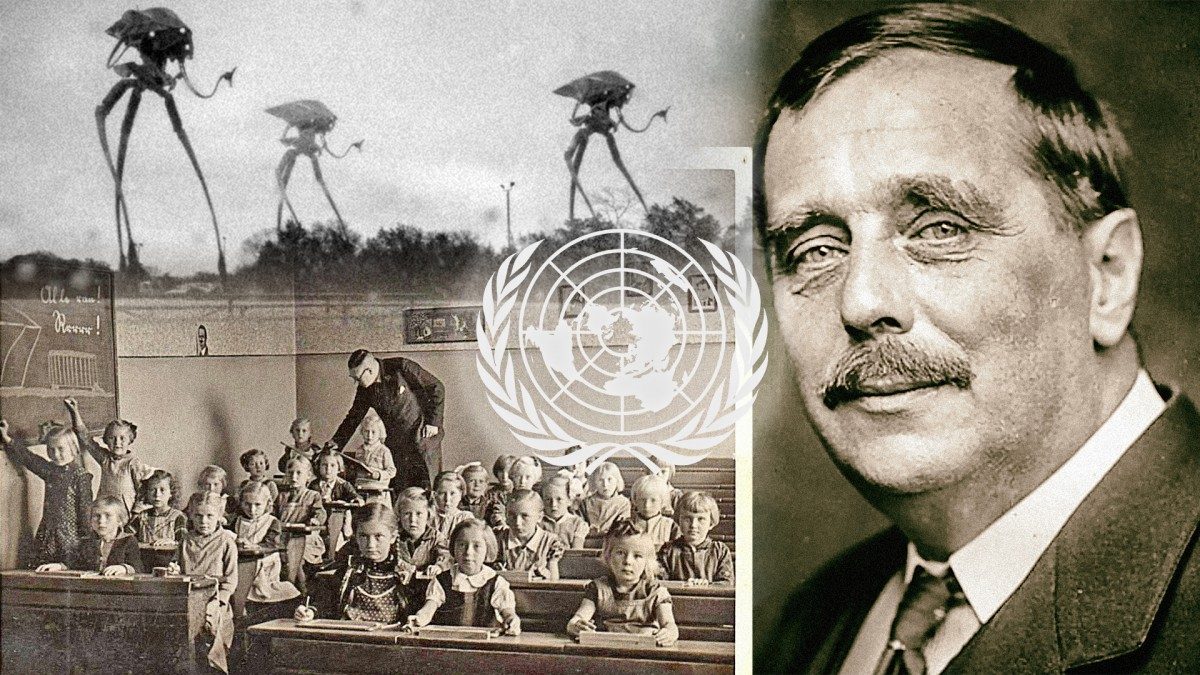
History journal honours prof emeritus
Award-winning article explores H.G. Wells influence on history in schools
Having made a career out of teaching teachers of history, Faculty of Education professor emeritus Ken Osborne has now turned to studying the history of teaching history.
And he’s been recognized for that work as the recipient of the Canadian History of Education Association Founders’ Prize for 2016 for the best English language article published in the journal Historical Studies in Education.
“It’s always gratifying to be recognized. I am very pleased to be given such an award, because I certainly didn’t expect it,” Osborne said, adding a journal committee selected his article without it having been submitted for consideration.
Titled, “ ‘One Great Epic Unfolding’: H.G. Wells and the Interwar Debate on the Teaching of History” (Historical Studies in Education, 26, 2 (Fall 2014): 1-29), the article explores the English writer’s efforts to change how history was taught between the two World Wars. Although Wells is well known for penning War of the Worlds, famously read by Orson Welles in a radio broadcast that inspired widespread panic, the English author was also a noted historian and political activist. Convinced that history teachers were largely responsible for the rise of aggressive nationalistic attitudes that led to the First World War, Wells argued that a reformed history curriculum focusing on global history in all of the world’s schools could prevent a second world war. Ultimately, Wells failed to convince lawmakers, leading to his famous quote: “God damn you all, I told you so.” Osborne’s award-winning article delves into the arguments used to advance Wells’ case.
Prof. Osborne started his career as a history teacher in 1960s at Daniel McIntyre, teaching in the public school system before joining the Faculty of Education as professor, teaching the courses, including methods, until retiring in 1996.
His interest then turned to the history of education in Canada, “in particular, the history of history teaching.
“As I retired, it dawned on me that no one had written about a lot of the arguments about the teaching of history in schools. Nobody really knew a lot about the history of the debate around history teaching,” Osborne said.
Osborne explored history-teaching debates reaching back to the early 1900s—Canadian versus American and European history, differing content among the provinces versus federal organizations that were trying to make history curriculum consistent across the provinces.
During this research, Osborne stumbled upon a newspaper called “The Bulletin of the League of Nations Teaching” published by a branch of the League of Nations that in the 1920s-’30s was trying to influence and shape the teaching of history in schools to make it more internationalist and anti-war by including more social and global history in the curriculum.
“The idea was that we had just been through the First World War, and if we teach history properly, we might be able to avoid all future wars by making children more internationally minded,” Osborne said, adding many people supported this effort, including H.G. Wells, the subject what was to become his award-winning paper.
Not one to rest on his laurels, Osborne has moved on to his next project—the history of history teaching in Canada, “…which sounds like a weird and crazy topic but these days, we have serious academic histories being written about … the history of the kiss, the history of the smile … so the history of history teaching doesn’t sound so off the wall.”
Osborne reduces the topic of history teaching to essentially defining citizenship.
“It’s about how we use history to produce ‘good Canadians.’ The topic of history teaching gets you involved in questions of national identity, national versus international, global versus local. All of the issues are there,” Osborne said, quoting former governor general Vincent Massey, “to the school, we must look for the good Canadian.”







Ken, we have been concerned about how the history of Canada’s first people has been presented over the years. It is extremely biased and no credit is given to our people for their contributions to the development of Canada. Has this changed?